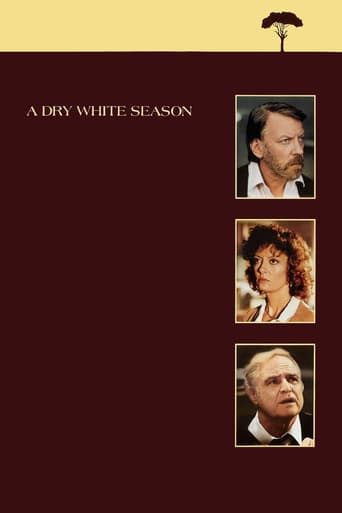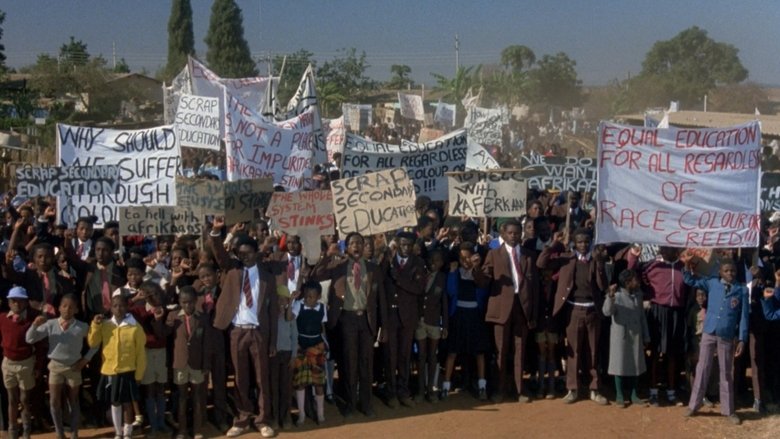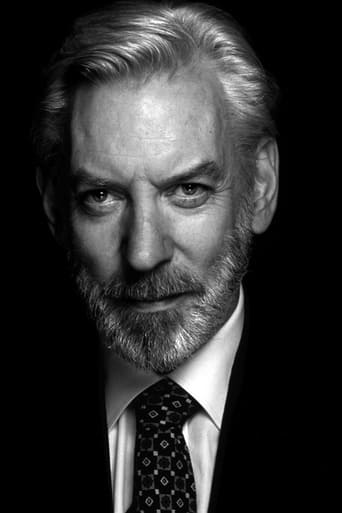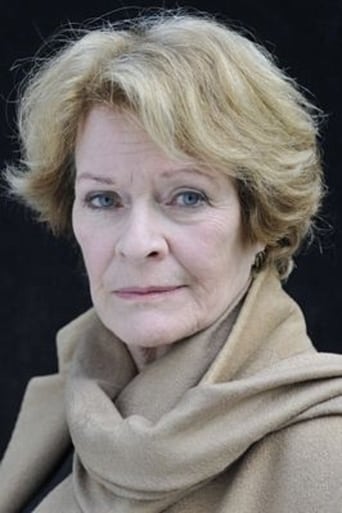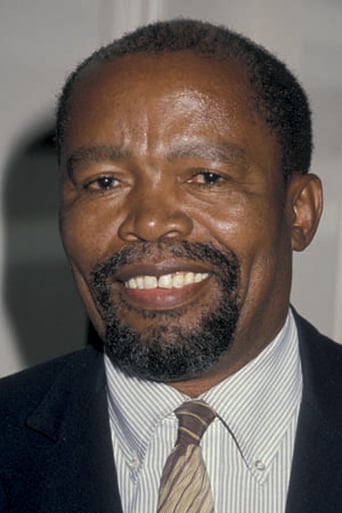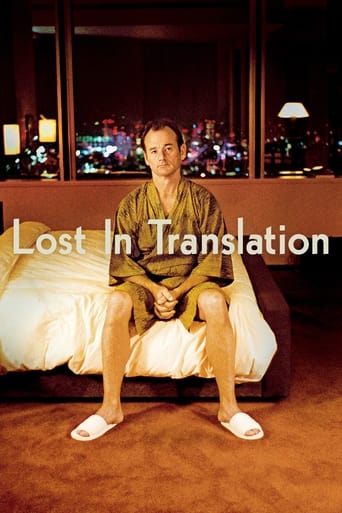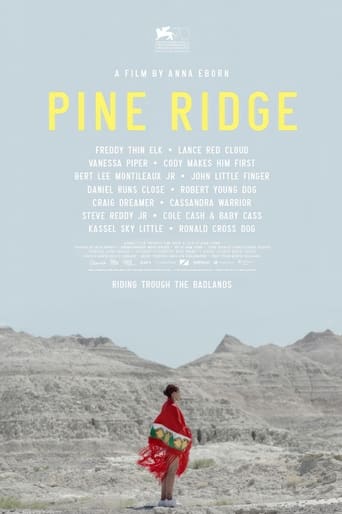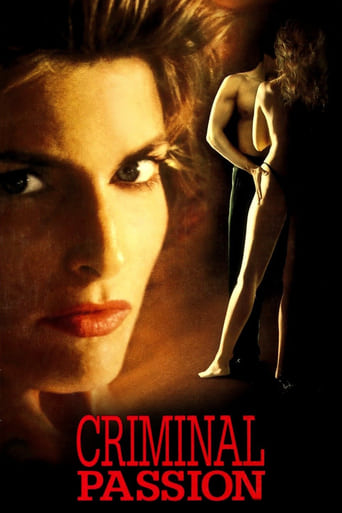A Dry White Season (1989)
During the 1976 Soweto uprising, a white school teacher's life and values are threatened when he asks questions about the death of a young black boy who died in police custody.
Watch Trailer
Free Trial Channels
Cast


Similar titles
Reviews
Self-important, over-dramatic, uninspired.
One of the best films i have seen
I gave this film a 9 out of 10, because it was exactly what I expected it to be.
A terrific literary drama and character piece that shows how the process of creating art can be seen differently by those doing it and those looking at it from the outside.
It's 1976. Ben du Toit (Donald Sutherland) is a liberal South African schoolmaster and a former rugby star. He is shocked by the police beating of his gardener Gordon's son but does nothing. When the kids gather to protest the teaching of Afrikaans, the police reply with violence. Gordon's son goes missing. Ben, in his sheltered life, tries to help and the police tells him that he's dead. Ben again advises Gordon to leave it alone. Gordon continues to investigate and gets arrested. Captain Stolz (Jürgen Prochnow) is the man in charge of torturing Gordon. Gordon's wife brings lawyer Stanley Makhaya (Zakes Mokae). The police claims that Gordon committed suicide. Stanley brings Ben to the Soweto township and shown the truth of his torture. Melanie Bruwer (Susan Sarandon) is a newspaper reporter. Civil rights lawyer Ian McKenzie (Marlon Brando) relents to Ben and takes on the case.Ben is a clueless idiot at the start of the movie and that is the part that I dislike most about the movie. It would be so much better for Ben to be in denial. Sutherland plays it so wide eye and ill-informed. It would be more dramatic and better as character development that he doesn't come off as ignorant at the beginning. The court case in the middle drags on a little too much. It's often hard to switch into court like that. There isn't the shock of revelation since the movie already showed the torture earlier. This is also very heavy handed. This feels like a sermon more than a drama. Having Marlon Brando there pontificating doesn't help. The other problem is that after the court case, the movie goes back to the white folks. Even though it's not the movie intention, the black folks get sidelined. Nevertheless, it's an interesting attempt at bringing South Africa to the big screen.
Compelling fictional account of a teacher (Sutherland) who begins to delve into the clandestine methods of his local South African police force when the heavy handedness being meted out against the coloured population happens close to home. Sutherland's character is essentially colour-blind, and shocked to discover his friends, colleagues and even his wife are all afflicted by the stain of Apartheid, and unwilling to modify their views (for fear, retribution and in some cases, their racism).Brando has a relatively peripheral role as the human rights counsel, appearing in a puppet court where vicious establishment official Jurgen Prochnow is on trial for covert, racially-based atrocities. Prochnow is the film's sleeper role as the cold, merciless enforcer, while Ntshona playing Sutherland's key accomplice is also quite a defining character (some may recognise him from "The Wild Geese" in which he played the president in exile Julius Limbani). Susan Sarandon, Michael Gambon, Paul Brooke, John Kani and Ronald Pickup have smaller roles.There's a few unsettling moments and gathering tension in the manner in which Sutherland's character is perversely ostracised for his 'disloyalty', a pariah whose young son makes him vulnerable to retributions. It's a busy kind of movie with frequent scene interchanges, multiple minor characters and sub-plots but the narrative is pervasive and keeps you engaged.
Donald Sutherland plays a well-respected white man living in apartheid-era South Africa. He is a famous ex-rugby player--with a happy life. But, when one of his servants comes to him to complain about police violence towards his son, slowly Sutherland is forced to confront the evil within his society. You see, this caning is only the beginning--soon far, far worse happens to these people and Sutherland refuses to look away and pretend it isn't happening. Eventually, Sutherland is so enraged by the police brutalities that he seeks legal advice--he wants justice and won't accept that there is different justice for blacks and whites. When the case comes to court, it soon becomes VERY apparent that it is futile. Despite overwhelming evidence showing how brutally the police murdered one of their detainees, it was ruled a suicide. With seemingly nothing he can do, what will he do next--especially when his own family just want him to drop it? It's funny, but there was a LOT of hubbub about Marlon Brando in the film. While he totally dominated the portion he was in, it was a relatively small role. I really had to feel sorry for Sutherland, as he was very good in the film but got almost no notice since Brando is an iconic figure and so much attention went towards him.As far as the film goes, it's excellent in every way--well acted, directed and written. It's a very compelling and sad film--and fortunately it's also about what is finally past. Well worth seeing.By the way, this is not a major complaint, but twice in the film if you look closely you can see supposedly dead people breathing. The first is a little girl who is shot and perhaps she really could have continued breathing for a few seconds. But, the guy inside the coffin is clearly supposed to be 100% dead but you can see his chest moving. These goofs should have been caught but don't really detract from the film.I am going to visit South Africa in a few weeks. As an American I naturally know very little about the place, but to get myself in the mood, I am watching as many films about the country as I can. Like most of these films, "A Dry White Season" is about South Africa during the apartheid era. I wish I knew of some other films (other than "Invictus") which talked more about South Africa as it is today.
This is a wonderful film, superbly acted by a great cast. Everyone is very understated, despite the understandable possibilities of over-acting. Donald Sutherland, Marlon Brando and the little boy are particularly outstanding - but one would really need to list all of the cast! The story shows the courage needed to stand up against the pressure of society when one (somewhat belatedly in our hero's case) discovers the injustices that are daily committed. While there is a lot of blood and gore, for once it simply reflects the situation. The Marlon Brando character is certainly wonderfully acted; his accent was so British it took us quite a little while to recognised him, despite his fairly unmistakable appearance! - we were watching this on television, knowing only that it took place in South Africa. My compliments to all involved!

